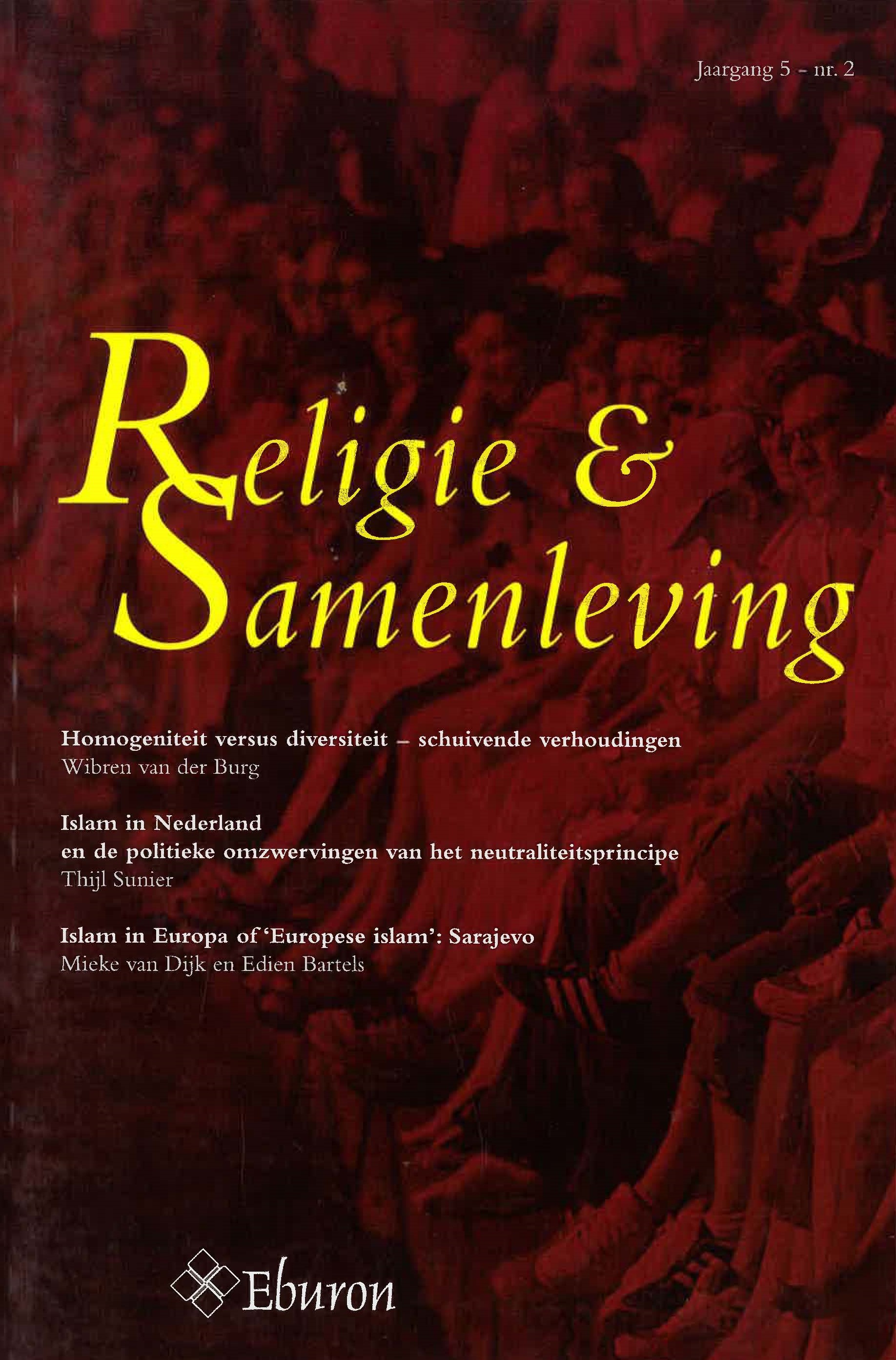Islam in Nederland en de politieke omzwervingen van het neutraliteitsprincipe: drie stellingen
DOI:
https://doi.org/10.54195/RS.13075Samenvatting
In the first decade of the new millennium Islam has become one of the prime policy concerns in most countries in Europe. Different national governments feel the urge to develop strategies in order to ‘domesticate’ Islam according to their national projects. This results in different trajectories of national integration and different stakes in the national debates on Islam and integration. The article addresses these issues by elaborating three statements. First, domestication is put into policy practice primarily by depicting Islam as a migrant religion. Secondly, historical parallels between the integration of Islam and that of other religions are hardly emphasized. The presence of Muslims is conceived as a unique case which cannot be compared with previous developments. Thirdly, the emergence of modern mass media in recent decades has largely contributed to the public image of Islam.




